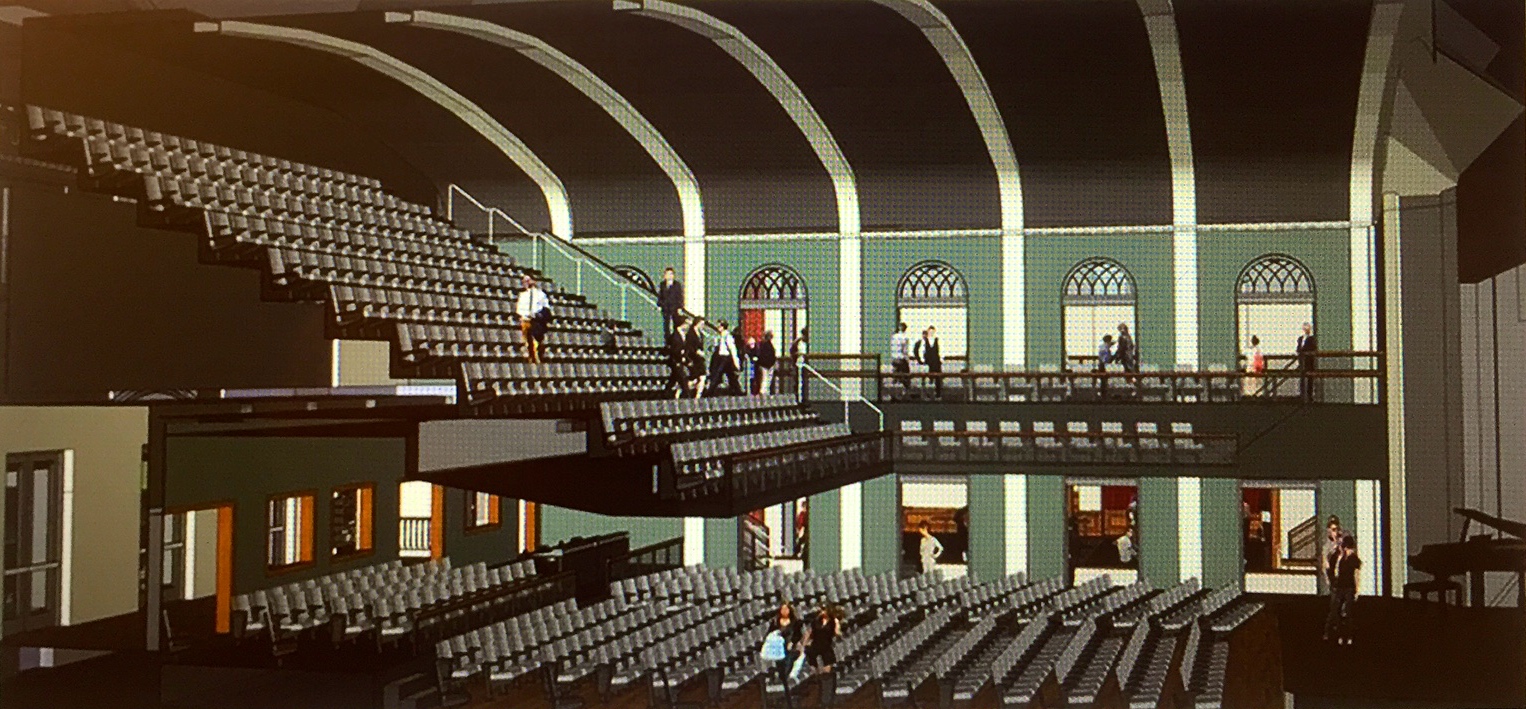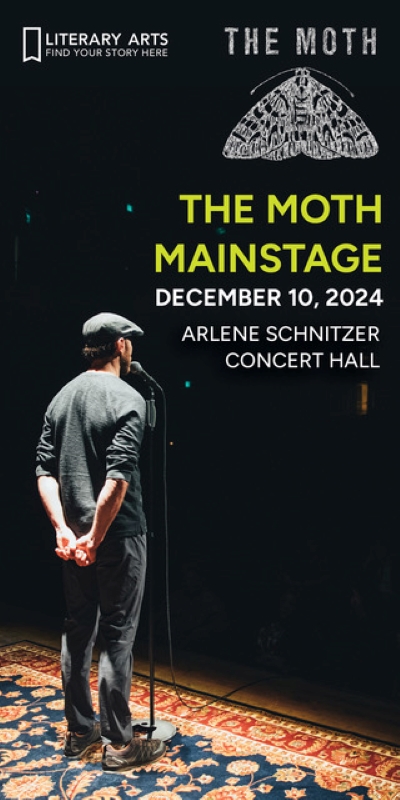By Randi Bjornstad
It’s hard to believe — how time flies, as the saying goes — that Francesco Lecce-Chong’s grand plan to conduct the Eugene Symphony in the entirety of Richard Wagner’s incredibly long and richly detailed opera, Tristan und Isolde, by splitting it up act-by-act over three seasons, is coming to its final curtain.
But that’s what has happened, and Act III will be performed on Nov. 16, 2023, in the Silva Concert Hall of the Hult Center for the Performing Arts, ending Lecce-Chong’s bold adventure.
Nina Warren and Roy C. Smith return once more to perform the roles of Isolde and Tristan, as does Ola Rafalo as Isolde’s maid Brangäne.
Music by legendary ragtime composer and oerformer Scott Joplin rounds out the program.
The history
Here’s how Eugene Scene reported the plan back in April 2022, when Act I was performed toward the end of the 2021-22 season:
Richard Wagner’s epic opera, Tristan und Isolde, is not performed all that often for several good reasons: the three-act opera in its entirety takes about five hours to perform; it’s so demanding that few singers are up to the task; and very few orchestras dare take on the whole daunting thing.
But Francesco Lecce-Chong, music director and conductor of the Eugene Symphony, has a plan to bring the entirety of Tristan und Isolde to the Eugene stage — one act at a time over three seasons — beginning now, with its April 21, 2022 concert.
“I only know of a couple of orchestras that ever have done the whole opera,” Lecce-Chong said. “Many just do Act II as a concert piece. Each act is a self-contained epic so it can be performed alone, but I don’t know of anyone who is doing what we are doing. I feel that this is a Eugene-only project, and I couldn’t be more excited.”
As far as he knows, this is only the second time this opera has been performed in Oregon, and the first time was in Portland “some 50 years ago,” Lecce-Chong said.
Wagner — his full name was Wilhelm Richard Wagner — was German and lived completely in the 19th century, from 1813 to 1883, while Mahler, who was born in Bohemia, then part of Austria, straddled the 19th and 20th centuries, from 1860 to 1911.
Wagner’s primary influence came from his development of “music drama,” including The Flying Dutchman and works based on Northern European myths and legends, including Tristan und Isolde and the Ring Cycle.
Mahler, who was primarily a composer in the Romantic tradition, nonetheless set out to become the best Wagner conductor of his day, despite the fact that he himself was Jewish and cognizant of Wagner’s philosophical and political proclivities, Lecce-Chong said.
“In a certain sense, Mahler kept Wagner’s music alive by keeping his focus on the music and text alone,” he said. “There’s something rather extraordinary about the Jewish musicians of that time. They had their own strong religious and cultural backgrounds, and yet they were able to take this other music and not only make it their own, but in fact make it their own legacy. I think that’s incredible.”
Lecce-Chong views this project as “probably the largest project in the history” of the Eugene Symphony.
“It is one of the most consequential pieces of art ever created,” he said in announcing the three-year-plan. “By dividing the three epic acts of the opera across three seasons, audiences will have a chance to immerse themselves in this intoxicating sound world and discover how music, literature, and philosophy were all forever changed in its wake.”
The story of Tristan und Isolde
Of course there are many synopses of the long and involved plot line of Tristan und Isolde, but one of particular interest comes from a pocket-sized book called The Story of a Hundred Operas and subtitled, Invaluable to Radio Listeners.
The tiny volume was compiled originally by composer Felix Mendelssohn, who described it as “not intended in any way to be a serious literary production, but as an endeavor to present to the opera-loving public in clear and concise form, the plots of the operas, with mention of the principal arias as they occur.”
It was published first in 1913 — long after Mendelssohn’s death in 1847 at age 38 — by Grosset & Dunlap, Inc., in New York City, and re-released in 1940. Various newer versions are still in publication.
Mendelssohn’s act-by-act description of the plot
Here is Mendelssohn’s rendition of the plot of Tristan und Isolde:
Act 1
The deck of a Vessel. Tristan, the knight, is bringing Isolde from Ireland to Cornwall to become the bride of King Mark, she having accepted his proposal, made through Tristan. The sailors are joyous over the killing of Marold by Tristan, the former being the betrothed of Isolde. The deed has freed Cornwall from the domination of Isolde’s father. Isolde, on the threshold of a loveless match, is attracted by Tristan whom she alternately loves and hates. Finally she decides that he shall die by poison and that she will die with him. She orders Brangaene to prepare the drug. But the faithful friend, dreading to see the Princess perish, prepares a love potion instead. This Tristan and Isolde drink. They are amazed and then embrace each other in ecstasy just as the ship reaches the shores of Cornwall.
Act 2
Garden of the Palace. The King has left his bride and gone on a hunting expedition But Brangaene tells Isolde that the King’s departure is a ruse and that the Princess is being watched by the courtier Melot. She tells Isolde, too, about the substitution of the love potion for poison. “Fatal folly.” But Isolde does not rebuke her, nor does she heed her warning about the crafty Melot. She declares that love’s goddess was instrumental in her drinking the love draught, “They act.” Tristan, signaled to by Isolde, finds the Princess and they are oblivious to everything except each other and their happiness. Kurwenal, Tristan’s friend and servant, arrives to warn him of the danger. But it is too late now, for Melot and the King surprise the lovers. The King bitterly reproaches his nephew but despises the low trickery of Melot. Tristan draws his sword on the courtier but in the fight Melot inflicts a fatal wound.
Act 3
Interior of Tristan’s Castle in Brittany Here the wounded knight has been brought by Kurwenal. Isolde has been sent for to use her healing arts in restoring Tristan to health. Her coming is announced from the ramparts. Tristan, delirious, tears off his bandages in his effort to go to Isolde. As she reaches him he dies in her arms. Following her come King Mark and Melot. The King has come to reunite the lovers But Kurwenal, thinking they have come to kill and not to heal, attacks them. He slays Melot and is himself slain by Melot’s soldiers. King Mark finds Isolde dying of grief by the dead Tristan, Isolde’s death song: “Mild and softly he is smiling,” As she expires King Mark prays over her body.
Eugene Symphony: Tristan und Isolde, Act III
When: 7:30 p.m. on Thursday, Nov. 16, 2023
Where: Silva Concert Hall, Hult Center for the Performing Arts, One Eugene Center (7th and Willamette streets), Eugene
Tickets: $10 to $68, available at the Hult Center box office, 541-682-5000, or online at hultcenter.org










